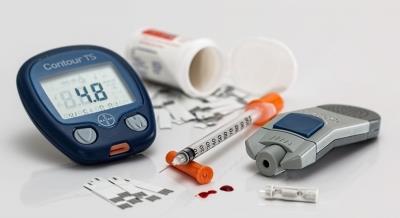
Boys Are At Greater Risk Of Developing Type 1 Diabetes Than Girls: Study
It showed that the risk decreases markedly in girls after age 10 years, while the risk in boys stays the same.
Furthermore, the risk of T1D is significantly higher for boys with a single autoantibody -- proteins produced by the body's immune system that attack other proteins.
This suggests that the male gender could be linked with autoantibody development, indicating the importance of incorporating sex in the assessment of risk, said the team from the University of Exeter in the UK.
Importantly, the study showed that, unlike most autoimmune diseases, male sex is a risk factor for type 1 diabetes (T1D).
This raises the hypothesis that either immune, metabolic, or other differences between sexes may impact risk or progression through stages of T1D.
In this study, the team studied 235,765 relatives of people with T1D. They used computer and statistical modelling to calculate the risk of T1D, stated as an estimated five-year risk for females and males respectively, after adjusting for confounders.
Males were found to have higher autoantibodies (females: 5.0 per cent males: 5.4 per cent).
Males were also more likely to be screened positive for multiple autoantibodies and their chances were also higher in absolute five-year risk of progression to T1D.
“The change in risk at around the age of 10 raises the hypothesis that puberty-related hormones may play a role,” said the team calling for more research.
The findings will be presented at this year's Annual Meeting of the European Association for the Study of Diabetes from September 9-13 in Madrid, Spain.

Legal Disclaimer:
MENAFN provides the
information “as is” without warranty of any kind. We do not accept
any responsibility or liability for the accuracy, content, images,
videos, licenses, completeness, legality, or reliability of the information
contained in this article. If you have any complaints or copyright
issues related to this article, kindly contact the provider above.


















Comments
No comment